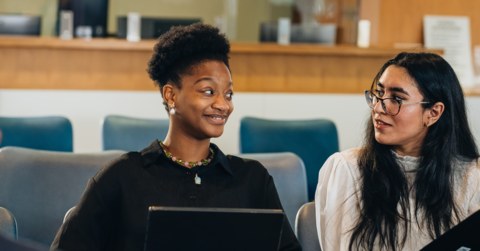EDGE is an opt-in experiential education certificate program for undergraduate students in regular (non-co-op) programs of study. Students who complete EDGE develop professional skills, explore their career options and learn how to market themselves to employers.
We’ve designed EDGE to be flexible — you can complete the required milestones during any term and in almost any order depending on your schedule and interests. You can also mix, match and combine experiential learning courses, employment and volunteering opportunities to find the EDGE that's right for you.
By completing EDGE, you'll develop a wide range of employer-friendly skills. You'll further refine those skills by reflecting on your experiences. We've designed EDGE to encourage you to put the skills and behaviours you've developed into practice.
You can start to plan your journey through EDGE by reviewing our milestone opportunities. If you've already successfully completed multiple terms at the University of Waterloo, you may be eligible for select EDGE milestones.
Why I chose EDGE

Taking full advantage of all the mock interviews, résumé critiques and career development workshops offered by EDGE has really boosted my confidence in entering my field of interest.

I chose EDGE because I really wanted to get some form of work experience that I could use to grow and stand out when joining the workforce.

Questions about EDGE?
Our dedicated EDGE team is here to support you through this flexible and wide-ranging certificate program. Reach out to the EDGE team to get started or learn more.
Currently participating in the EDGE program?
All information and forms for students currently enrolled in EDGE are on LEARN.


